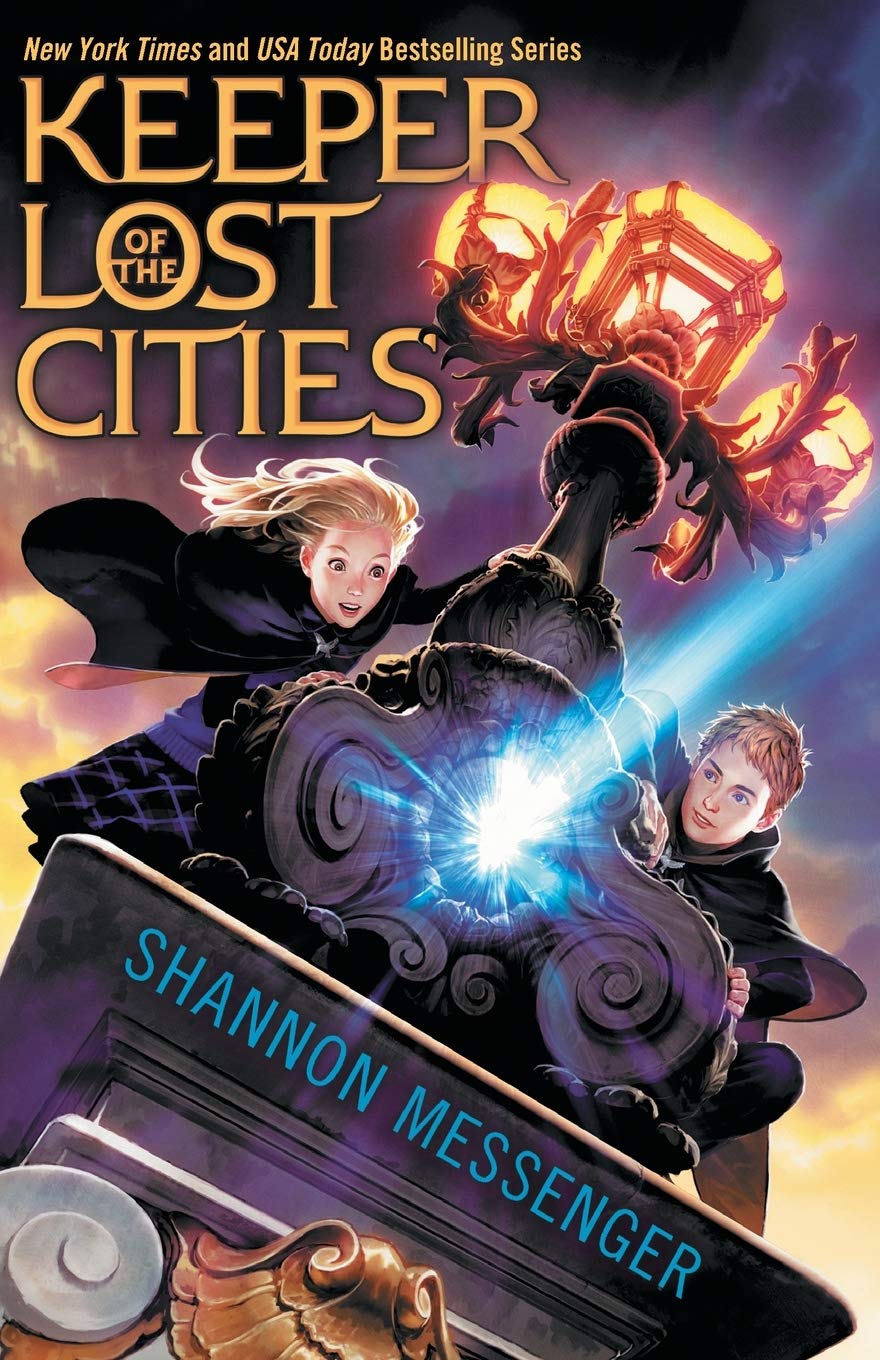Keeper of the Lost Cities, by Shannon Messenger, is a derivative but ultimately wholesome fantasy adventure written for a female audience. Now, you’ve so heard this kind of tween prose before, and you might be totally, absolutely mortified when you notice how much this book echoes the plots of other bestselling, middle grade fantasy books. But, like Sophie Foster, you’ll probably survive the ordeal. I mean just barely. And, while you’ll have to wade through the standard eco-gospel, and a lot of middle school melodrama to get there, the book also features a very human story about parental grieving, and a child’s need for a family.
Stop me if you’ve heard this story before: A protagonist who feels like she doesn’t really belong in her native world, discovers that she doesn’t really belong in her native world. In fact, she’s actually a member of a magical world that exists alongside this one. This magic world differs in many details from the human world, but turns out to have political and sociological parallels to human society. The protagonist attends a magical school where – unlike human school – the lessons are actually immediately useful, and/or can get you killed, and she learns to play a magical sport, at which she excels. While she has a steep learning curve, she’s also ahead of the curve, being possessed of strange powers owing to her mysterious origin. Not everything or everybody is who he seems to be, and that includes the adults, some of whom seem to be allies, while others are strangely hostile. In the end, the heroine has to break the rules – but not really – in order to save the day.
A lot of Middle Grade and Y.A. fantasy lives in the shadow of Harry Potter, and Keeper is no different. The elves in Sophie’s world could be swapped out for the wizards, gods, or fairies of Harry Potter, Percy Jackson, or Artemis Fowl without much difference. The book even has its own versions of house elves (gnomes,) mudbloods (bad matches,) quidditch (splotching), and something resembling Bertie Bott’s Every Flavor Jelly Beans. Sophie attends a magical school where the professors are also advanced magic-users, encounters magical (or supposedly extinct) animals, and learns to use the standard devices of elven magical technology. There’s at least one secret society working against mainstream elf society, and whose existence no one wants to admit.
Another way Keeper resembles Percy Jackson and Artemis Fowl – though not the Harry Potter series – is its ecological themes, and accompanying critique of the human world. The enlightened elves are vegetarians, you see. They would never eat animals – though they do eat magical vegetables that taste exactly like cooked animals. And they even impose their cost-free vegetarianism on animals, such as dinosaurs, whom they’ve magically preserved from extinction. Keeper features a cringe-inducing scene of an elven animal keeper helpfully converting a T-Rex into a nice plant-eater. While no such consideration is extended to those most defenseless of all creatures – the vegetables – the elves of Keeper cannot be accused of lacking the courage of conviction. They’re true believers.
Humans, on the other hand, are insensible to both magic and nature, and elves make it a point to avoid almost all contact with them. However, in this respect Sophie’s own perspective differs slightly from that of the elves. Keeper splits the middle between Harry Potter’s egalitarianism, and Artemis Fowl’s magical-being elitism, and Sophie views the human race sympathetically in spite of its limitations, and the prejudices of the elves. Another thing Keeper has in common with Potter, and has over Percy Jackson and Artemis Fowl, is its wholesome view of the family.
Without giving too much away, Sophie both is and isn’t an orphan. Her deep need for family connections, despite her own murky origins, serves to emphasize just how essential family is to healthy personal development. While in the elf world, she’s under the care of a couple, the Ruewens, who’ve lost their only daughter. Their grief is still raw, and is compounded by the fact that it’s essentially incommunicable. Since elves are almost immortal, the Ruewens’ peers cannot understand their grief. They’re believably torn between embracing Sophie as a daughter, and pushing her away, because the risk of loving is too great. This very “human” struggle gives depth to the story, which would otherwise be somewhat lacking in it. This, and the lack of any objectionable content, makes the story wholesome, and appropriate for its target audience.
Aside from an insincere and unrealizable eco-ethics, there’s little in Keeper of the Lost Cities to give parents pause. An examination of the series’ extensive fan Wiki seems to confirm that later books in this projected ten book series are mostly free of the agenda-pushing that sequels have been known to introduce. There’s no language, no sexual content, and little politics. While its tweenish vocabulary and cute boys-mean girls melodrama conforms to all of the standard, formulaic tropes for this genre, one can be thankful that the first book is both clean and family-centered, and that the latter books appear to be free of any particular agenda. The first book’s emphasis on relationships, boys, and blushing, make it an unlikely favorite for the majority of male readers, and it would appear that later books in the series follow the same pattern, with Sophie torn between the charming Fitz, the dangerous Keefe, and the relatable Dex. It remains to be seen whether the tenth book will introduce troubling elements, but the series so far should be a safe bet for its intended audience.



